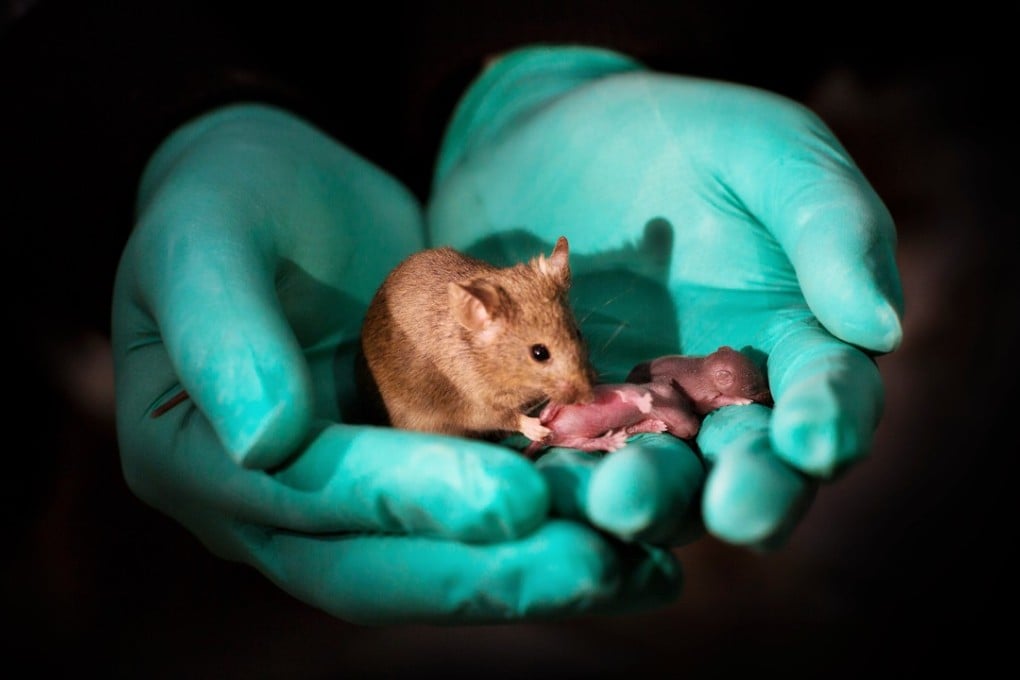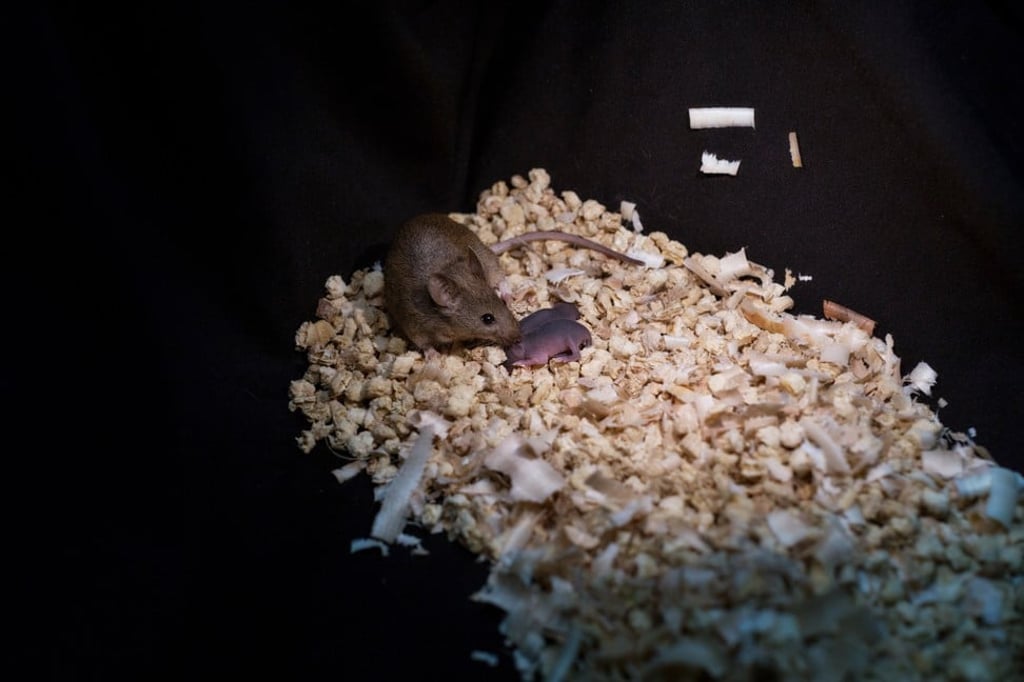Chinese scientists, using DNA editing, breed healthy mice from two mothers
Team also used genetic manipulation to create pups from two male mice, but these survived only a couple of days

Chinese scientists have produced healthy mouse pups from two female parents with the help of DNA editing, according to a study published in the American scientific journal Cell Stem Cell.
The team also bred mouse pups from two male parents, but those offspring survived only a couple of days.
“Previously, we have derived mice with two female parents with one or two DNA region modifications, but all these mice exhibited significant growth retardation before or after birth,” said Zhou Qi, a co-author of the study and a researcher with the Chinese Academy of Sciences.
“Now we have found a third DNA region to delete, and produced bimaternal mice – those from two mothers – with normal growth and behaviours.”
Zhou and his colleagues produced 29 live mice from 210 embryos. The “uniparental” mice were normal, lived to adulthood, and had babies of their own, the study said.
They were also able to create 12 live mice with two fathers, but those pups survived only two days, indicating there were greater challenges for successful reproduction using two male parents.
